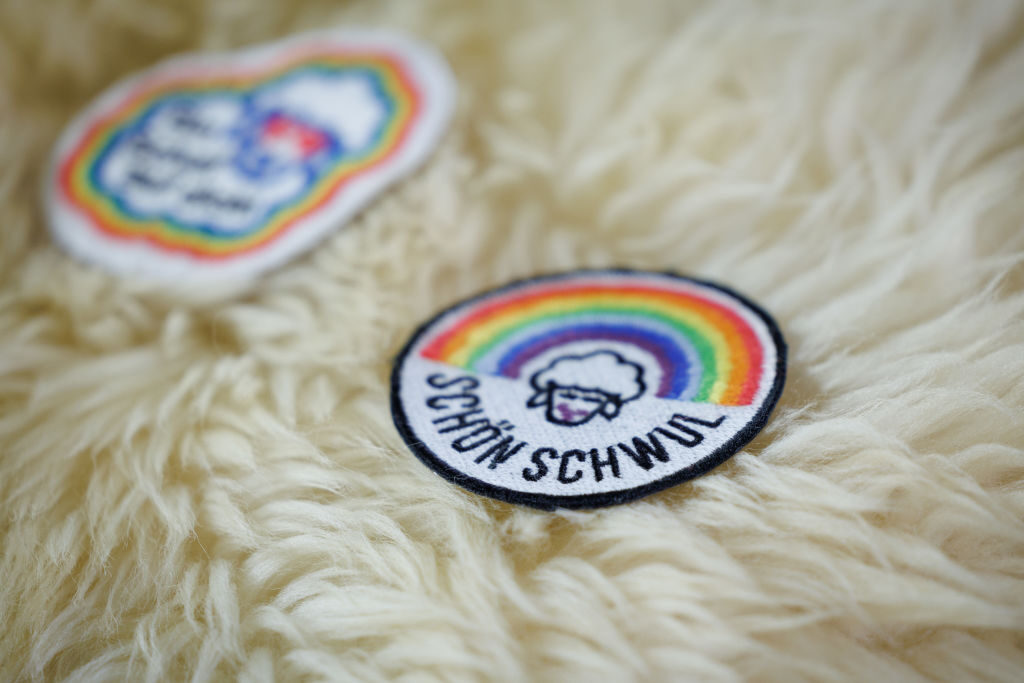A woke fashion designer has debuted the wool of “gay sheep” at a New York fashion show as part of a campaign to raise money for rams that live shortened, diminished lives because they prefer same sex-partners. (Stop giggling up the back. He’s serious.)
Los Angeles-based designer Michael Schmidt, who has styled A-listers including Beyonce and Taylor Swift, launched the line to bring a “human rights story” to the runway after discovering sheep that prefer their own sex rather than the opposite are often disregarded and sent straight to the slaughterhouse without respite, the Daily Mail reports.
Hats, dungarees, a dressing gown and a sailing hat were all reportedly crafted for the show from the wool of exclusively gay sheep.

View of a sticker with the inscription “Schön schwul” [beautifully gay] in a farm store. Shepherd Michael Stücke keeps gay sheep on his farm. Stücke has become known in the media because Tokio Hotel singer Bill Kaulitz is a sponsor of the animals and wool production. (Friso Gentsch/picture alliance via Getty)
Rainbow Wool, a German non-profit that rescues non-mating sheep – it estimates about one in 12 sheep is gay – partnered with gay dating app Grinder to put on the “I Wool Survive” fashion show so gay sheep can be applauded, admired, and warmly loved in the wider community.
Apparently.
“I don’t view this really as fashion,” Schmidt told the New York Times. “I view it as an art project. The idea it’s selling is that homosexuality is not only part of the human condition, but of the animal world.
“That puts the lie to this concept that being gay is a choice. It’s part of nature.”
Tristan Pineiro, Grindr’s vice president of brand marketing, added: “You can’t say the sheep were corrupted by woke culture.”
Some research has suggested as many as eight percent of rams show preference for same-sex partners, according to studies by Charles Roselli, a professor at Oregon Health & Science University.
If a ram shows no interest in ewes and prefers other males for company, their inability to breed makes them economically unviable for many farms, which often leads to their early demise, GB News notes.

